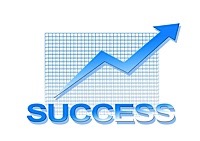
It was just a lunch. On the day after being elected in 2005, the two of us met over local Italian fare with the hope that our cities, too often divided, could come together and start acting like a single unified region. That simple lunch not only turned into a media frenzy covered by seemingly every news outlet around, but launched a partnership not seen in our region for over 30 years.
This beginning developed into a strong collaborative foundation that over the past five years, has, indeed, become the new normal—not only for our two cities, but for our regional partners as well. Together we have secured significant investments through public, private and philanthropic partners including Living Cities and the U.S. Department of Housing and Urban Development to strengthen economic opportunity along our transit corridors.
Because recent indicators reveal distinct signs of economic decline, we have formed a dynamic private/ public partnership that includes regional mayors, CEOs, the Minnesota Department of Employment and Economic Development and the Target Corporation, to shape an economic development initiative that will take us to a new level of regional prosperity.
Ours is a region that gave rise to 3M, Control Data, Medtronic, and dozens of other success stories. We are home to one of the finest public research universities in the world as well as a host of small colleges.
We know that there are good ideas ready to launch and companies ready to be born that will grow our economy. We propose to accelerate innovation and entrepreneurship and put the entire strength of this region squarely behind the most promising of those ventures. It is a business proposition, pure and simple. We know that as they grow, these companies will create new markets for local goods and services, provide meaningful employment, add vitality to our neighborhoods and expand our tax base, which will, in turn, give rise to more good ideas and the cycle begins again.
As mayors, this is the work we were elected to do. That we have the opportunity to work together at the heart of such a forward-thinking region is indeed a privilege.
Download the PDF



















